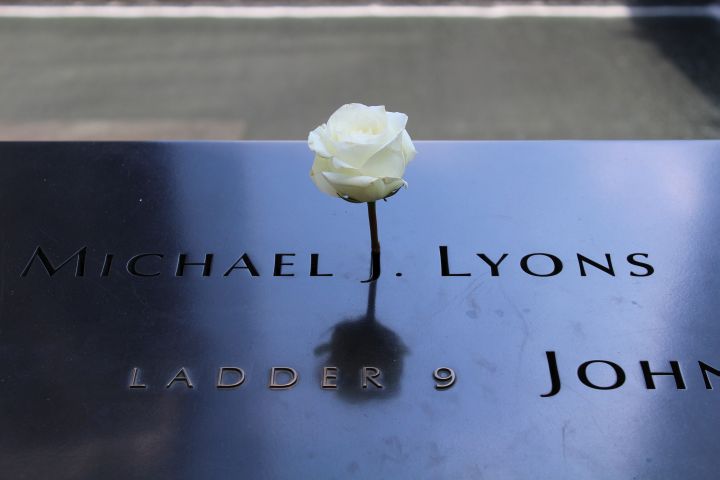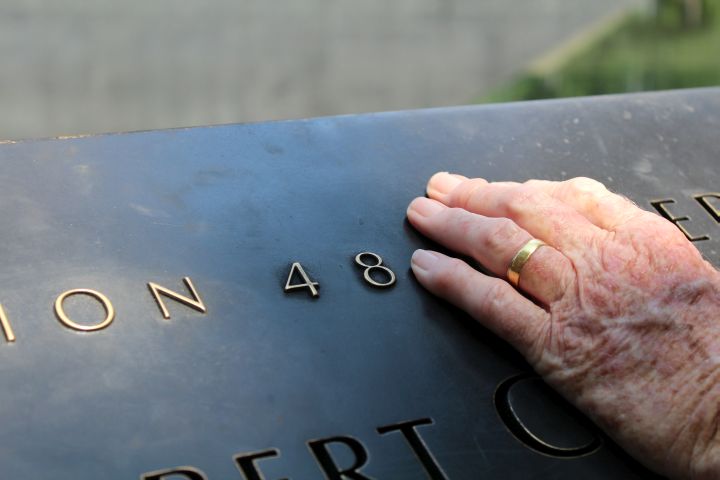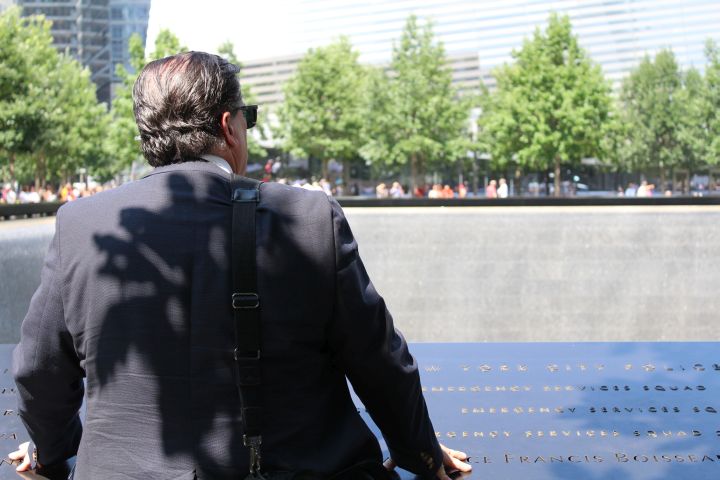There are moments in all of our lives where we seem to remember not just where we were, but heightened details of each passing minute. For most of us, these relate to positive memories like a first kiss, or Canada’s Golden goal in 2010.

But on Sept. 11, 2001 the “where you were” came nowhere near “what you wanted to see.” I was 15 years old, lying in bed, when my father barged into the room:
“Get up, son. The World Trade Centre in New York has just been hit by a plane.”
My father was a news director in Vancouver and his phone started ringing when the first tower was hit. At first, we believed—we hoped this was just an accident. By the time I rubbed the sleep out of my eyes, the second plane had hit…this was no accident.
READ MORE: After 15 years, last artifacts of 9-11 have been given away
I remember sitting in disbelief as my father flipped the coverage between American and Canadian networks and made frantic phone calls as he headed into work. Not even the most seasoned of newscasters could mask their emotions while trying to make sense of the chaos and carnage.
When the first tower went down, I didn’t want to watch, but I couldn’t look away. The sick feeling in my stomach was overshadowed by shock. For the rest of the day, I was a zombie at school. I couldn’t believe they wanted us to concentrate on fractions when an American city was collapsing.
READ MORE: Remembering 9-11 and the impact it had on Canadians
For the last 15 years, the entire day—even the weeks after—stuck with me.
William Hirst, a psychologist at the New School in New York City calls these “flashbulb memories,” suggesting we may not remember as well as we might think. Of course, we remember the fallen, the heartbreaking images, even the historical importance. However, the exact details may not be as vivid as we remember.
A similar study done by psychologists Neisser and Harsh in 1992 found comparable results regarding the Challenger explosion in 1986. Within 24 hours of that “flashbulb” event, students were asked to recount every meticulous detail. Two-and-a-half years later, researchers asked the same people to recall those memories. Although the participants were confident, only seven per cent could even come close.

Get breaking National news
READ MORE: Remember where you were on 9/11? Study suggests memories may be distorted
As much as I cast this notion aside, I understood what they meant when I went to the 9/11 memorial in New York this summer. The Big Apple has always been a dream vacation of mine, with the memorial an important part of the visit.
When I walked towards the two sunken fountains, a flood of emotion hit that I wasn’t expecting. It was mostly sadness and compassion, but also guilt. Guilt that I had forgotten the infamous “falling man” or the images of ash-covered firefighters stumbling down the street. They had been consigned to the back of my memory.
Most people looked over the fountains, the nearby church and the murals in silence. A long lineup formed outside the new 9/11 museum, while the Freedom Tower stood proudly nearby. A list of victims’ names scrolled out across the concrete containing the fountains, some of which now used as the base for a single rose left by loved ones, or maybe complete strangers. I don’t really know how long I stood there, but long enough not to notice an elderly woman come share my perch.
We both stood in silence for a few minutes until her emotion became too much. She told me her husband had been a firefighter before he passed. I didn’t push, but after telling me she came to this site several times a year, I thought it safe to assume he worked in the city and likely ran into danger on that fateful day when the rest of us just wanted to run away. I couldn’t imagine what that must have been like for her, how often she must replay every minute in her head. Even if he was somewhere else in the city, everyone was hurt.
I also met a man visiting from Italy. His English was about as good as my Italian, but we shared a few sombre sentences, before he placed a rose on one of the names. This wasn’t just a pit stop in the city for him, either; this was a destination. A place he needed to come after images from half a world away were burned into his brain. His emotions, his memories… much different from mine.
On this 15th anniversary, the pictures from 9/11 will once again circulate on both mainstream and social media. It will drum up old feelings, but it will also come with a unique memory for each of us. In a few weeks, those will fade until another year comes. For others, like the woman I met, this day sparks a memory that will never truly stop burning.
Sadly, recent attacks in Paris and Orlando will drum up similar emotions and memories for the next generation. The 15-year-old kids today have more recent horrors burned into their consciousness. They will live with a familiar, yet unique numbness that will subside and erupt when they least expect. Where they were, just as important as who they were when it happened.
Most of us were nowhere near ground zero on 9/11, but this day connected us in pain. It also separated us: the moment meaning something different for all of us.
While the circumstances of this day are unique to each person, it’s important to remember and to honour it however you need to. It’s a day and an emotion as bonding as it is divisive. A flashbulb we can only pray never goes off again.
READ MORE: 10 powerful images as thousands mark 13th anniversary of 9/11






Comments